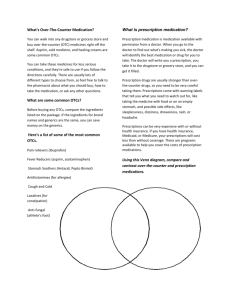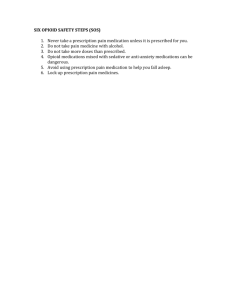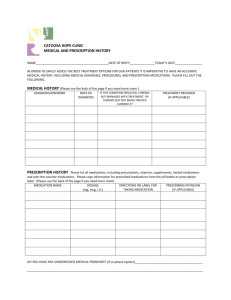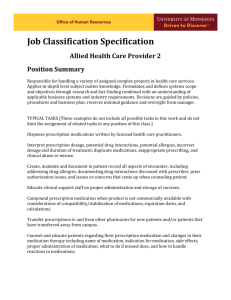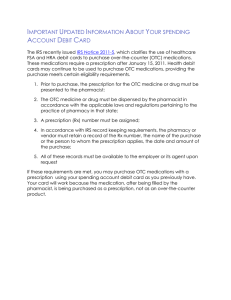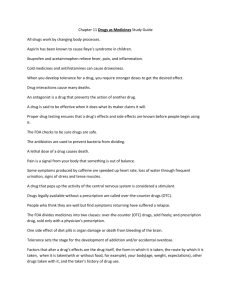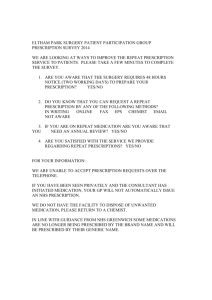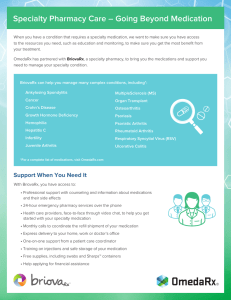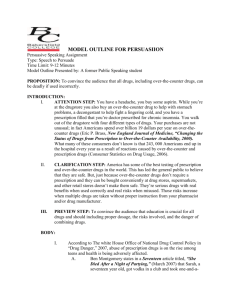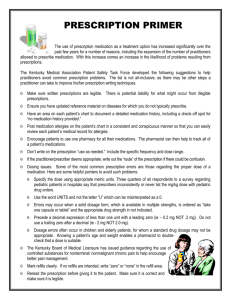Compare/Contrast OTC and Rx
advertisement
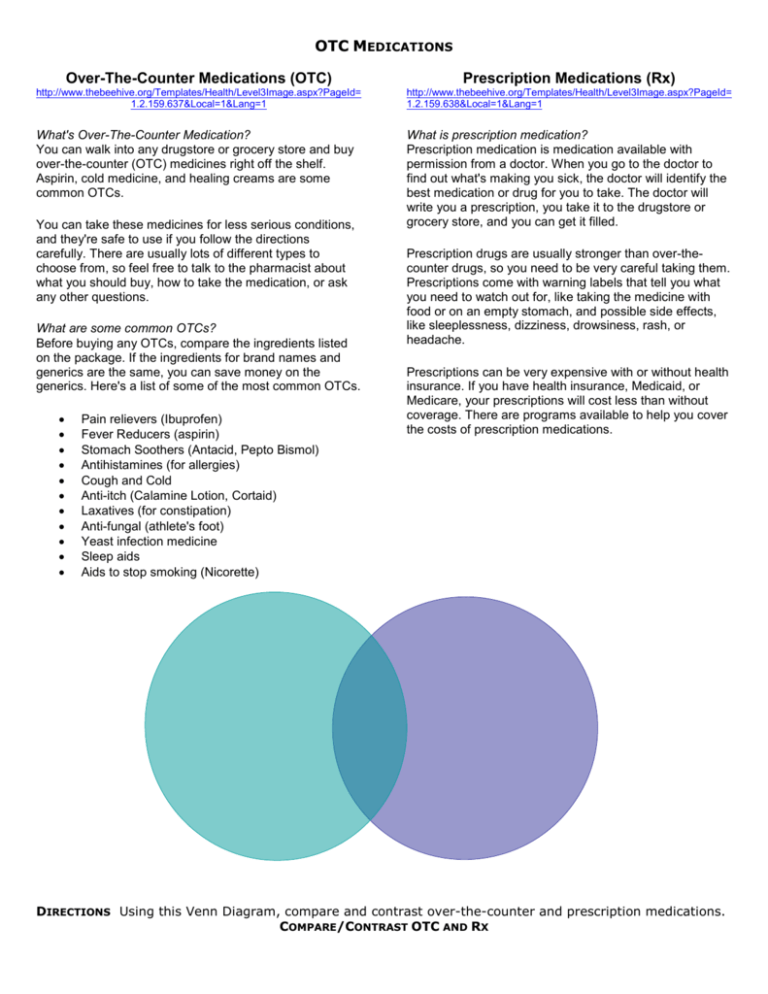
OTC MEDICATIONS Over-The-Counter Medications (OTC) Prescription Medications (Rx) http://www.thebeehive.org/Templates/Health/Level3Image.aspx?PageId= 1.2.159.637&Local=1&Lang=1 http://www.thebeehive.org/Templates/Health/Level3Image.aspx?PageId= 1.2.159.638&Local=1&Lang=1 What's Over-The-Counter Medication? You can walk into any drugstore or grocery store and buy over-the-counter (OTC) medicines right off the shelf. Aspirin, cold medicine, and healing creams are some common OTCs. What is prescription medication? Prescription medication is medication available with permission from a doctor. When you go to the doctor to find out what's making you sick, the doctor will identify the best medication or drug for you to take. The doctor will write you a prescription, you take it to the drugstore or grocery store, and you can get it filled. You can take these medicines for less serious conditions, and they're safe to use if you follow the directions carefully. There are usually lots of different types to choose from, so feel free to talk to the pharmacist about what you should buy, how to take the medication, or ask any other questions. What are some common OTCs? Before buying any OTCs, compare the ingredients listed on the package. If the ingredients for brand names and generics are the same, you can save money on the generics. Here's a list of some of the most common OTCs. Pain relievers (Ibuprofen) Fever Reducers (aspirin) Stomach Soothers (Antacid, Pepto Bismol) Antihistamines (for allergies) Cough and Cold Anti-itch (Calamine Lotion, Cortaid) Laxatives (for constipation) Anti-fungal (athlete's foot) Yeast infection medicine Sleep aids Aids to stop smoking (Nicorette) Prescription drugs are usually stronger than over-thecounter drugs, so you need to be very careful taking them. Prescriptions come with warning labels that tell you what you need to watch out for, like taking the medicine with food or on an empty stomach, and possible side effects, like sleeplessness, dizziness, drowsiness, rash, or headache. Prescriptions can be very expensive with or without health insurance. If you have health insurance, Medicaid, or Medicare, your prescriptions will cost less than without coverage. There are programs available to help you cover the costs of prescription medications. DIRECTIONS Using this Venn Diagram, compare and contrast over-the-counter and prescription medications. COMPARE/CONTRAST OTC AND RX
